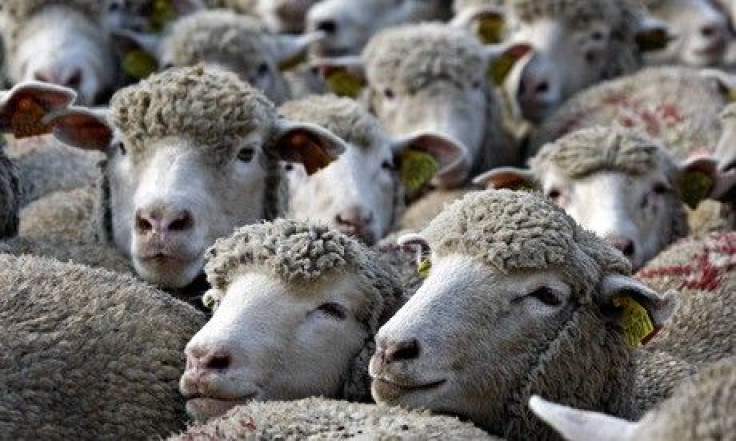New Zealand’s Sheep Population Declining Fast: Switch Over To Dairying And Meat Exports Cited As Reasons

New Zealand's sheep stock, once the mainstay of its economy, is depleting fast and has slumped to its lowest number since World War II. According to the national livestock survey, the flock numbers have dropped by 3.2 percent and the numbers just 29.6 million, which is the lowest in 75 years.
The decline of the woolly flock started in 1982 after peaking to 70.3 million. Many reasons are offered for the decline in sheep farming. One reason is the migration of farmers to dairy farming on a big scale. Since 1987, dairy farming literally overtook conventional sheep farming, The Guardian reported.
China Factor
Commenting on the decline in the number of sheep, Beef and Lamb chief economist Andrew Burtt attributed it to the strong demand for mutton from China and the pursuit of dairy farming. Among other contributory factors, he cited rapid urbanisation, plantation forestry and increase in viticulture besides change of land use. In many places, sheep farming land was converted to conservation estate land.
However, the silver lining is that depite the fall in sheep numbers, New Zealand is surging in meat exports with record export earnings posted in 2014 at $5.3 billion. "The reality is that the industry is doing a whole lot better with a whole lot less," quipped Burtt. In 1982, New Zealand had 70.3 million sheep for a population of 3.18 million people and it meant 22 sheep per person, reported Independent.
Beef and lamb are New Zealand's second-highest export items. But wool is now relegated to the 14th position after pearls, precious stones and metals. The Federated Farmers chairman of meat and fibre, Rick Powdrell, hoped that an improvement in meat and recovery in wool exports will halt the slide in sheep numbers. Powdrell said many sheep farmers abandoned sheep farming in the late 1980s after facing problems like eczema and fly strike.
Shearing Competition
The falling sheep numbers is also threatening New Zealand's iconic shearing competitions after local shearers became far and few. Noted Doug Laing of Shearing Sport New Zealand, the shortage has affected many shearing events. The number of competitions have also dropped. It is now 60 a year from the erstwhile 100 or more. The lack of shearers was worst in the far north where farmers have been switching to dairying. New Zealand was introduced to sheep farming in 1777 by British explorer Captain James Cook and by Samuel Marsden, a missionary, who brought flocks of sheep to the Bay of Islands and Mana Island to feed the whalers.
(The writer can be contacted with feedback at kalyanaussie@gmail.com)






